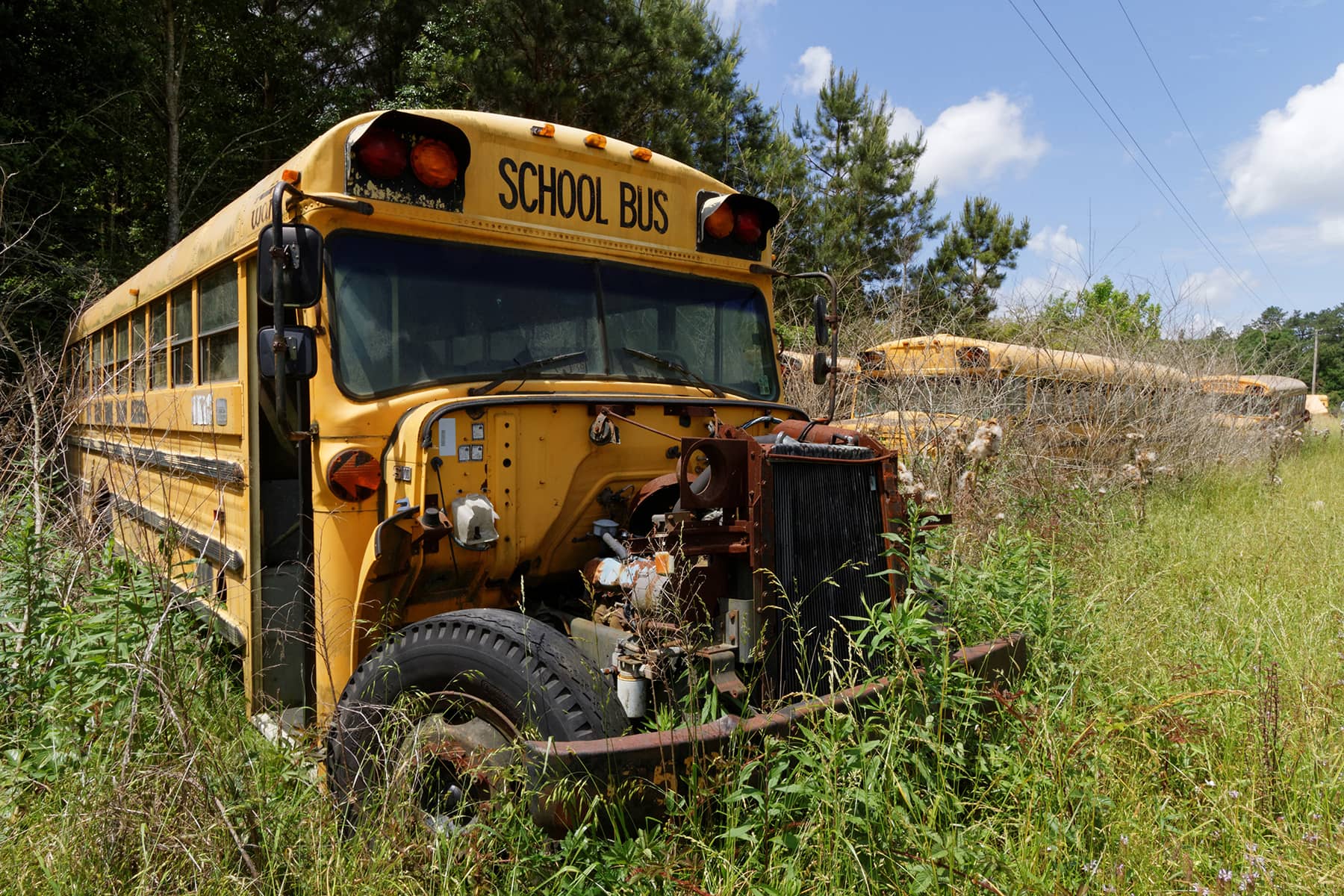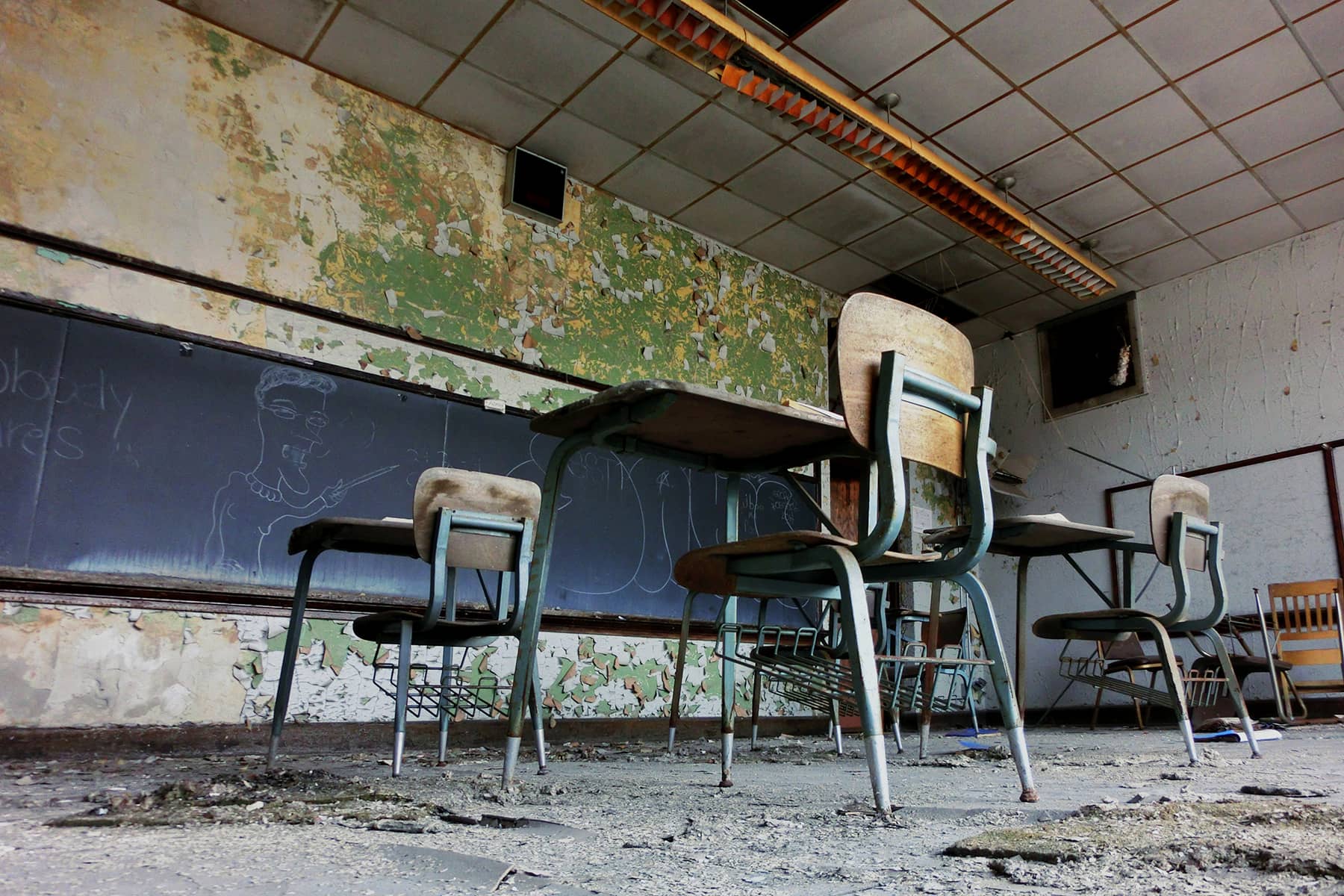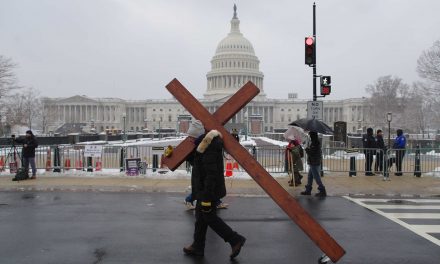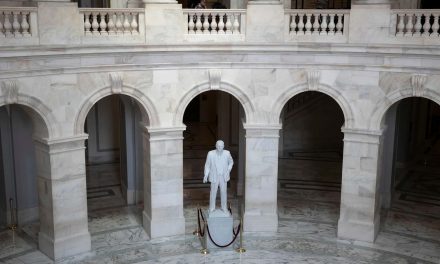
In 1776, British economist Adam Smith published “The Wealth of Nations,” a book that laid out the principles that modern economies have operated under for centuries, with the exception of the catastrophic Reagan Revolution years of 1981 to 2021.
In addition to arguing for a strong domestic manufacturing base and high taxes on the wealthy, Smith pointed out that one of the things that most directly constitutes the wealth of a nation is its educated workforce and well-informed populace, as a result of that education.
From Thomas Jefferson creating the first tuition-free American college (the University of Virginia), to Horace Mann’s advocacy of public schools in the late 19th century, right up until 1954, this was an uncontroversial position. It’s why every developed country on Earth has a vibrant public school system and — with the exception of the US since Reagan ended free college in California — most developed countries offer free or near-free college to their citizens.
But in 1954, the US Supreme Court upset the education apple cart by declaring in their Brown v. Board case that “separate but equal” schools, segregated by race, were anything but “equal.” That decision fueled two movements that live on to this day.
The first was the rightwing anti-communist movement spearheaded by the John Birch Society, which was heavily funded back then by Fred Koch, the father of Charles and David Koch. They put up billboards across the country demanding that Americans rise up and “Impeach Earl Warren,” who was then the Chief Justice of the Supreme Court, for requiring “communist” racial integration of our schools.
The second was the private, all-White “academy” movement that has morphed over the years into charter schools and the “school choice” movement of today. It received a major boost when the White supremacist co-founder of neoliberalism, Milton Friedman, published a widely-read and influential article in 1955 explicitly calling for what he called “education vouchers” to fund all-White private schools to “solve the national crisis” the Court had created.
In 1958 when the Virginia Supreme Court went along with the US Supreme Court’s Brown v Board decision and ordered that state’s schools desegregated, the governor shut down every public school in the state. Prince Edward County’s schools were still closed in 1964, when they were finally ordered to open by the courts.
Hundreds of “segregation academies” opened across the South; in Mississippi, for example, 41,000 White students left public schools to attend these academies in just the one year of 1969. Parents had to pay the tuition themselves, but they were willing to do so to avoid their children having to interact with Black, Hispanic, or Asian kids.
The turning point for the Republican Party was 1964, when President Johnson and a Democratic Congress passed and signed into law the Civil Rights Act. Shortly thereafter, one Southern Democratic politician after another changed party affiliation to the GOP so they could continue to argue against “forced integration” of public schools.
The Republican war on public schools burst into the open with the Reagan Revolution, when Education Secretary Bill Bennett oversaw a 30 percent cut in federal aid to public schools following Reagan’s promise to abolish the Department altogether. Every Republican running for president since has made a similar promise or claimed the need to end the Education Department.
Bill Bennett wa not shy about explaining why it was necessary to gut public schools, after the Supreme Court had ordered they must be racially integrated. Bennett wanted to privatize public education — as did Trump’s former Education Secretary, billionaire Betsy DeVos — and is probably most famous for his statement that gives us a clue as to why this idea of ending public education is so persistent in the GOP:
“If you wanted to reduce crime,” Bennett said on the radio, “you could, if that were your sole purpose; you could abort every Black baby in this country, and your crime rate would go down.”
Could it be that it is all about keeping White children away from Bennett’s Black babies? Is simple racism what’s animating the GOP’s antipathy toward public education?
One clue is that the idea of ending public education in America goes back even farther than Bennett or Reagan to a single moment and a single court decision.
When I was born, in 1951, Republicans loved public schools. Republican President Dwight Eisenhower led the charge to build gleaming new public schools all across the United States: I attended one, as did perhaps a majority of my generation.
But then came the Supreme Court, with their Brown v. Board decision.
In 1957, President Eisenhower ordered the Little Rock, Arkansas, public schools desegregated. The “Little Rock Nine” — nine Black children trying to desegregate Little Rock Central High School — became nationally famous when Governor Orval Faubus prevented them from entering the school that fall, provoking Eisenhower to call up federal troops to escort the children to class.
Faubus called a referendum — an election — and the good citizens of Little Rock voted 19,470 to 7,561 to shut down their entire school system rather than comply with Eisenhower’s order. That, in turn, led back to the Supreme Court, which, in the fall of 1958, ruled unanimously in Cooper v. Aaron that the Brown v. Board desegregation order was, in fact, now the law of the land for public education.
In response, Whites-only private schools and “academies” began springing up across the nation, many run by all-White churches. Jerry Falwell tried, in 1966, to open an all-White school; in 1980 he became Reagan’s main advisor on merging the White Supremacist faction of evangelical Christians — also triggered by Brown v. Board — into the GOP.
Thus, in 1958 the governor of Virginia closed all the public schools in racially mixed Warren County, Norfolk, and Charlottesville; Prince Edward County’s public schools remained closed for a full five years.
While that’s the foundational history of what has become the GOP’s war on public education, for most of the past 40 years Republicans have merely claimed vague libertarian principles when they try to explain what they ironically call “school choice.”
It was not until Donald Trump gave them permission — and showed them how politically potent it could be — to unleash their inner racists that the GOP went public with overt White Supremacy as a core value for the party.
While Critical Race Theory (CRT) was a little-known 1993 analysis of structural racism pioneered by Kimberlé Crenshaw and Derrick Bell taught only in law school, rightwing influencer Christopher Rufo popularized the term with an appearance on Tucker Carlson’s Fox “News” show.
From there, it echoed around the GOP for a few months before catching fire across rightwing hate radio, podcasts, and Fox. Pretty soon White Supremacist militia members were showing up at school board meetings threatening members that “we know where you live.”
Republicans anxious to stoke the fears of their White racist base began inveighing against teaching CRT in public schools — even though such a thing had never happened — and passing laws so loosely worded as to bar any meaningful teaching or classroom discussion of America’s racial history.
All-White private schools funded with taxpayer dollars have become the darlings of Republicans. In most cases these schools do not need to flout the law by declaring their segregated status: Black, Asian, and Hispanic parents most often simply aren’t interested in enrolling their children in schools that proudly proclaim they will not allow a drop of “CRT,” true American history, or real science education in their classrooms.
The issue of privatizing public schools came up in Arizona in 2018 with a statewide ballot initiative that would extend free school vouchers to every student in the state: it was defeated by voters by a 2:1 ratio. Writing for The Arizona Republic, columnist Laurie Roberts was unambiguous in her description of the state’s voters’ horror at the ballot initiative:
“Actually, they didn’t just reject it. They stoned the thing, then they tossed it into the street and ran over it. Then they backed up and ran over it again.”
Republicans in the heavily gerrymandered state, though, didn’t much care about the will of the voters. Appealing exclusively to their White racist “Christian” base, they pushed what was essentially that same proposal through the GOP-controlled state legislature and it was signed into law last year by Republican then-Governor Doug Doocey.
In giving every student in the state the ability to opt out of public education with a taxpayer-funded voucher, Doocey established a new benchmark in the war against racially integrated public schools that was matched this year by Florida, Arkansas, Iowa, and Utah.
Legislation to gut public schools and replace them with vouchers for private schools have failed in six states so far (Georgia, Texas, Idaho, Virginia, Kentucky, and South Dakota), but Republicans are not letting go. This year voucher bills were introduced in at least 24 states.
The fact that most of the nation’s public school teachers are union members has given Republicans another good reason, in their minds, to do everything possible to destroy public schools. As Trump’s former Secretary of State Mike Pompeo claimed last year, in the minds of Republicans the American Federation of Teachers’ President Randi Weingarten is “the most dangerous person in the world.”
Republicans also love the fact that voucher programs mostly subsidize upper-income families, while educationally ghettoizing the children of low-income parents. Vouchers almost never cover all the costs of attending a private school, so they primarily serve as a government handout to the mostly upper-middle-class White families who already wanted to send their kids to today’s version of the segregation academies.
Once the public schools are largely dead, Republicans will begin lobbying to “reduce spending” by cutting the amount allocated for the vouchers, locking the emerging two-tier status of publicly funded education into place.
For the moment, though, private schools are a booming industry as a result of the GOP’s embrace of Friedman’s vouchers. In Florida, for example, they have virtually no rules or standards for the over-one-billion-dollars the state shovels into its private schools: while public schools must disclose their graduation rates, how they spend their money, and let anybody examine their curriculum, private academies have no such rules in many Republican-controlled states, even though they’re receiving public monies.
Many private schools across the country operate with untrained and uncertified “teachers,” have no clear standards for graduation, and refuse to teach “controversial” subjects like evolution, climate science, and the racial history of America.
Which brings us to organized religion, the other recipient of big bucks because of the school voucher movement. Schools affiliated with churches are now raking in billions every month across the US, and Republicans — who continue to push for unconstitutional things like mandatory public school prayer — pander daily to fundamentalists who don’t want their kids exposed to science or history.
Six corrupt Republicans on the Supreme Court legalized this practice of shoveling taxpayer funds to churches and religious schools in their notorious Carson v. Makin decision last year. As Justice Sonya Sotomayor wrote in her dissent:
[In just five short years this Court has] “shift[ed] from a rule that permits States to decline to fund religious organizations to one that requires States in many circumstances to subsidize religious indoctrination with taxpayer dollars.” This decison “continues to dismantle the wall of separation between church and state that the framers fought to build.”
Which is exactly what the GOP wants. As SenDem recently wrote for Daily Kos:
“Laura Ingraham claimed that ‘a lot of people are saying it’s time to defund government education or at least defund it by giving vouchers to parents.’ Fox’s Greg Gutfeld similarly declared that private school vouchers are needed because public schools are ‘a destructive system’ and described teachers as ‘KKK with summers off.’
“Sen. Marco Rubio of Florida has called public schools ‘a cesspool of Marxist indoctrination.’ Donald Trump declared, ‘public schools have been taken over by the radical left maniacs.’ And Rep. Marjorie Taylor Greene of Georgia called them taxpayer-funded indoctrination centers that need to end, which is a bit ironic since she is the poster child for the necessity of funding public education.”
Sweden has been flirting with libertarianism for a few decades and was the first developed country to offer American-style school vouchers to all kids so they could attend private, for-profit public schools. Just a month ago, their government proclaimed the experiment a disaster and is trying to figure out how to shut down the private schools and re-establish a public education system.
Public schools were the great social and economic leveler for the last century of American history; Republicans want to end that and instead advantage wealthy children over their lower-income peers, particularly those whose skin is darker than Trump’s spray tan.
Public schools and free college made it possible for America to produce an explosion of invention and innovation throughout the mid-20th century; now other countries are surpassing us, as the dumbing-down of our kids has become institutionalized in Red state after Red state.
And public schools gave many students their first experience of interacting with people who look different from them and grew up under different circumstances, awakening many young people to the discrimination and unfairness inherent in how America has historically treated minorities.
All of which explains why Republicans so badly want to put an end to public education in America.
Josh Cornish and Pierre Jean Durieu (via Shutterstock)
© Thom Hartmann, used with permission. Originally published on The Hartmann Report as Once Public Schools are Largely Dead, Here’s What Happens Next…
Subscribe to The Hartmann Report directly and read the latest views about U.S. politics and other fascinating subjects seven days a week.















